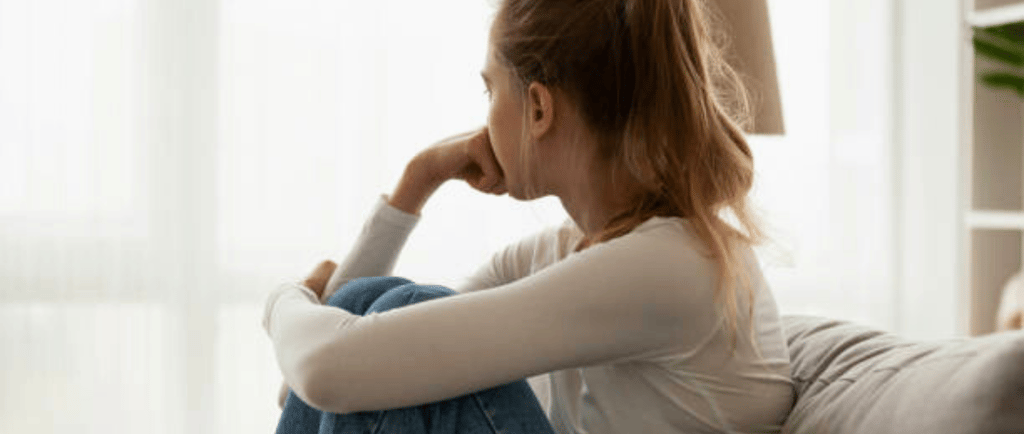Managing Anxiety: Strategies for Relief and Well-being


What is Anxiety?
Anxiety is a natural response to pressure, or feeling afraid or threatened, which can show up in how we feel physically, mentally, and in how we behave. The fight or flight response is the body’s natural way of helping you deal with the perceived ‘threat’ and acting on it.
It is a common experience that many people face at some point in their lives and but while it is normal to feel anxious in certain situations, chronic anxiety can have a significant impact on a person's well-being and daily life if exposed to for long periods of time.
Symptoms include; shortness of breath, difficulty sleeping, feeling tired, restless or irritable, feeling shaky or trembly, dizzy or sweating more, noticing your heartbeat gets stronger, faster or irregular, being unable to concentrate or make decisions, headaches, tummy aches or muscle pain are just a few.
If you suffer with anxiety, it’s easy to start avoiding things or people that trigger anxiety in the hope that the feelings will disappear, and while this might give you some short-term relief, long-term this can lead to other problems like loneliness and depression.
Identifying the Root Cause
When it comes to easing anxiety, it is essential to identify the root cause.
Anxiety can be triggered by various factors, including past traumas, stressful life events, even certain medical conditions, or be a combination of all of these things!
No one experiences the same things, so the causes and effects of anxiety are different for everyone, so understanding the underlying cause, can help in developing effective strategies to manage and reduce anxiety.
Seeking Professional Help
If you are struggling with anxiety, it’s important to seek professional help.
A mental health professional can provide guidance and support in uncovering the root cause of your anxiety and can also help you develop coping mechanisms and strategies to manage anxiety effectively.
Once you’ve identified your root cause, the following alternative therapies and tools might be useful in helping to heal your anxiety depending on your condition and root cause.
Practicing Mindfulness
Mindfulness is a powerful tool for managing anxiety. It involves being fully present in the moment and non-judgmentally observing your thoughts and emotions.
By practicing mindfulness, you can develop a greater awareness of your anxiety triggers and learn to respond to them in a more calm and controlled manner so you can catch them early and prevent you from feeling overwhelmed.
Engaging in relaxation techniques such as deep breathing exercises, progressive muscle relaxation, meditation and being in nature, can help ground you and alleviate anxiety symptoms. These techniques reduce the physical and emotional tension associated with anxiety and by relaxing the body and mind.
Alternative therapy including somatic breathwork is a new alternative of talking therapy to help identify and release tension and emotions from the body helping you deal with and overcome stress or trauma and promote feelings of peace.
Creating a Supportive Community
Having a safe and supportive environment can make a significant difference in helping you feel connected and helping promote a sense of belonging.
Surrounding yourself with people who love and support you who don’t judge or put unnecessary pressure on you and who can comfort you in your time of need, will help you feel at ease when your emotions are strong, and your feeling overwhelmed.
Connecting with friends and loved ones, talking, laughing and connecting with likeminded people are great ways to release stored negative emotions. Helping the body rid itself of negative emotions, connecting with your inner child and re-balancing the nervous system.
Engaging in Regular Exercise/movement
Exercise is not only beneficial for physical health but also for mental well-being.
Regular physical activity releases endorphins, which are natural mood boosters!
Exercise doesn’t need to be hard work, engaging in more gentle activities like walking, yoga, or dancing at home, can help you feel good, reduce anxiety and improve your overall mental health.
Body shaking, tapping and facia movement are great ways to help with stress relief, get rid of stored emotions and re-balance the nervous system.
Any kind of movement or pressure which feels good and you can do yourself, will help to move your emotions from the body and release them making you feel better. Just remember to keep moving and be kind to yourself while you do this.
Implementing Healthy Lifestyle Habits
Adopting healthy lifestyle habits can also contribute to easing anxiety. Make sure you are getting enough sleep, eating a balanced diet, and avoiding excessive caffeine or alcohol consumption.
Eating real food (preferably organic) drinking clean, filtered water will ultimately help you feel better and healthier and help keep your mind healthy and motivated to want to look after yourself - it has to start somewhere.
Lymph system work and trying to help the body rid toxins will help the body function better when you’re feeling anxious. Heat therapy for toxin removal/ massage/ rebounding / and dry brushing will all help you feel refreshed and help you to feel calmer.
Easing anxiety involves understanding the root cause and implementing strategies to manage and reduce its impact.
It's all to easy to live with anxiety and feel hopeless when trying to get some relief, It's not an easy journey, but starting with the little things and building them up slowly. Trying new things will all help in managing your symptoms and gaining a better understanding of your triggers and how to manage them.
Sending you lots of love :)